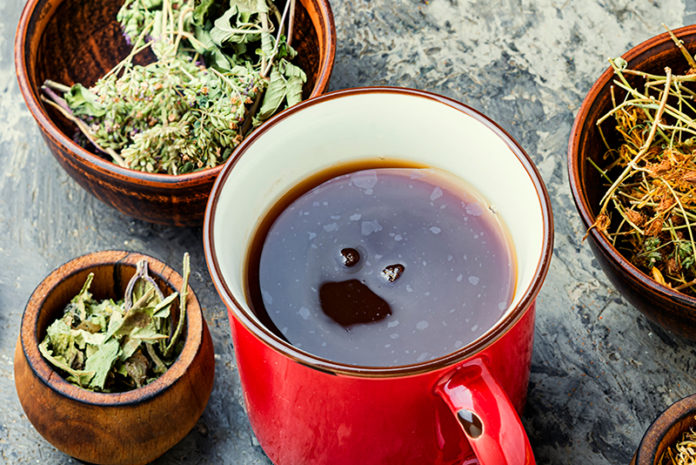Most of us are familiar with tea. Most likely sweet tea with plenty of sugar, ice cubes, and lemon. We probably consider it more of an alternative option to soda rather than an important part of our daily health regimen. For the most part, we drink tea with meals and at social gatherings. We might consider herbal tea during the flu season or as a calming agent, but most of us are likely unaware of the array of herbal teas available and their benefits to our bodies.
The Herbal Tea Lineup
Chamomile tea
One of the most popular and widely known herbal teas. Made from dried flowers, this tea is often used as a sleep aid and to reduce stress. Chamomile tea has also been shown to help lower blood pressure and regulate blood sugar levels in Type 2 diabetics. Some reports may also suggest that chamomile protects the liver and has anti-inflammatory properties.
Ginger tea
Another well-known herbal tea, especially when we suffer from nausea and upset stomach. What you may not know is that ginger is also full of antioxidants that can combat inflammation in the body and increase our immune system. A variety of studies into the effects of ginger tea have found this drink to help relieve nausea, indigestion, and even constipation. Ginger tea may also relieve menstrual cramps. Although not widely confirmed, some Type 2 diabetes patients have indicated a link between drinking ginger tea and stabilized blood sugar levels.
Peppermint tea
Aids in digestion and contains anti-inflammatory properties. Derived from peppermint oil, the tea is popular for calming problems with the digestive tract and soothing nausea symptoms. Some patients who suffer from IBS have reported that peppermint tea helped in relieving cramping and other symptoms associated with the condition.
Lemon balm tea
An excellent choice for preventing heart disease. A recent study on the effects of lemon balm tea showed that the drinkers experienced a noticeable improvement in arterial elasticity. Stiff arteries are a major contributing factor for heart disease and stroke. Lemon balm tea can also boost antioxidant enzymes in the body, and may also improve skin elasticity. Another study saw an increase in mental performance and a decrease in anxiety and mood swings.
Echinacea tea
Yet another popular herbal tea to combat cold/flu symptoms and decrease the usual period of being sick. Coming from the echinacea plant, this tea gives a boost to the body’s immune system, which helps us fight off infections and viruses. The results of any studies are not completely conclusive, however, echinacea tea is still widely used to soothe sore throats and lessen the usual cold and flu-related symptoms.
Sage tea
While it may not be as widely known as ginger or chamomile tea, however, its positive effects on the body are certainly noteworthy. Multiple studies have shown a noticeable positive effect on brain health by sage tea. More specifically, sage tea may actually be effective against the plaque that contributes to Alzheimer’s disease. Overall, sage oil boosts cognitive functions (memory and moods). Another study on sage tea suggested a positive link between the tea and the prevention of colon cancer.
Herbal teas offer a host of powerful benefits for our bodies. Ranging from reduced nausea to improved mental function and even protection against deadly diseases. Even if we do not generally suffer from poor health, drinking one or a few of these different herbal teas may help to keep our bodies working effectively for a long time.








